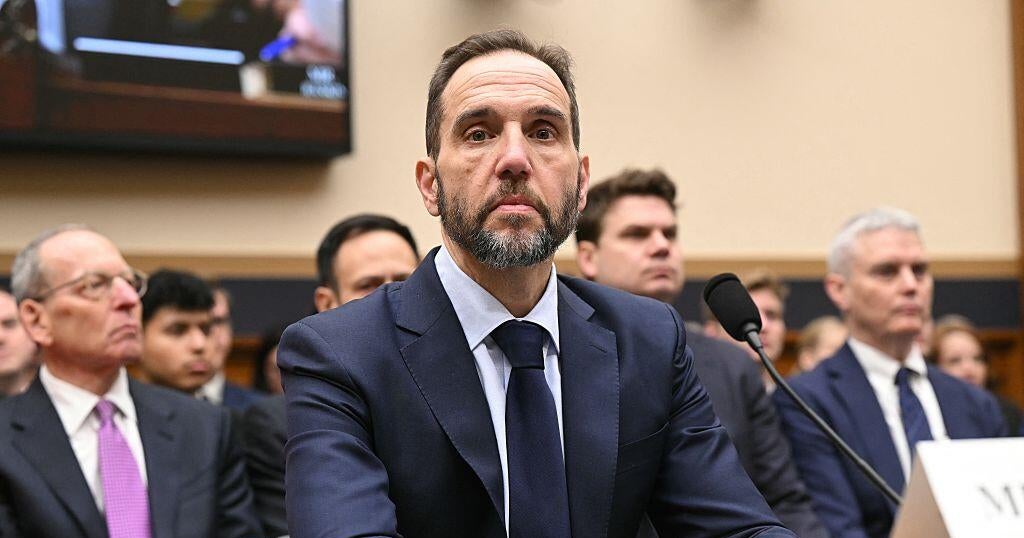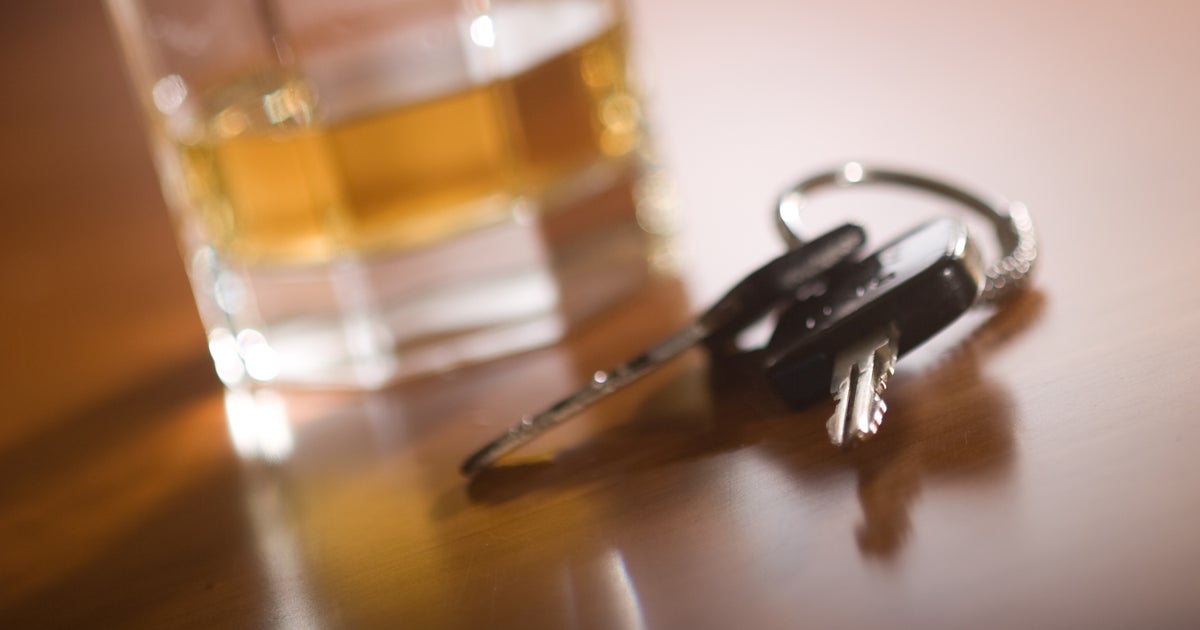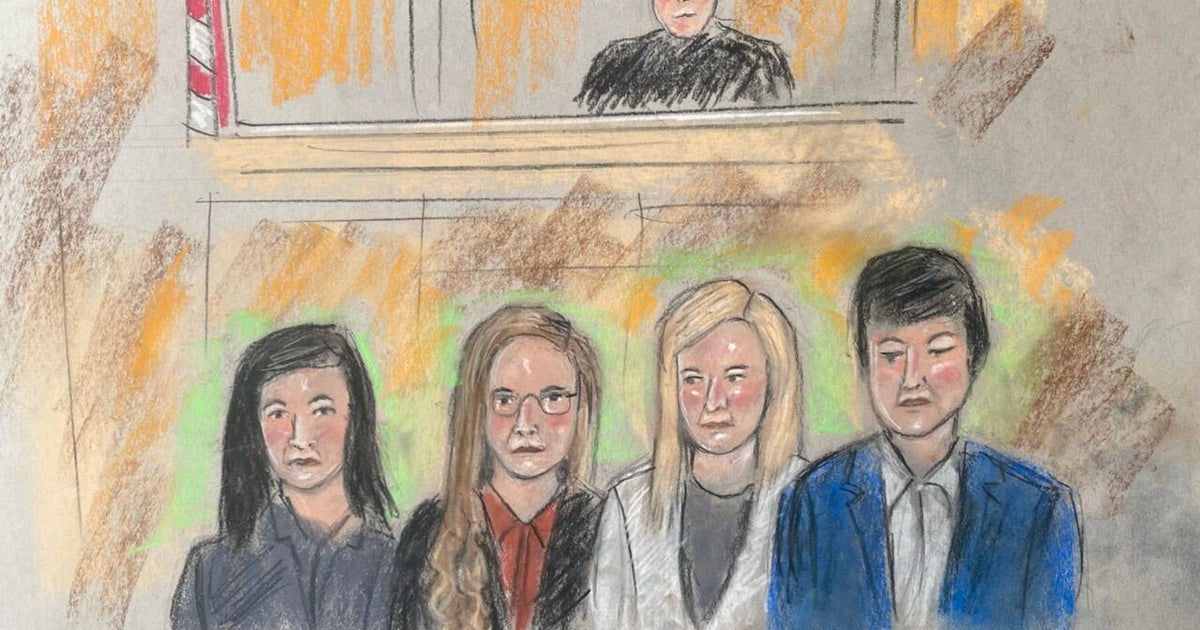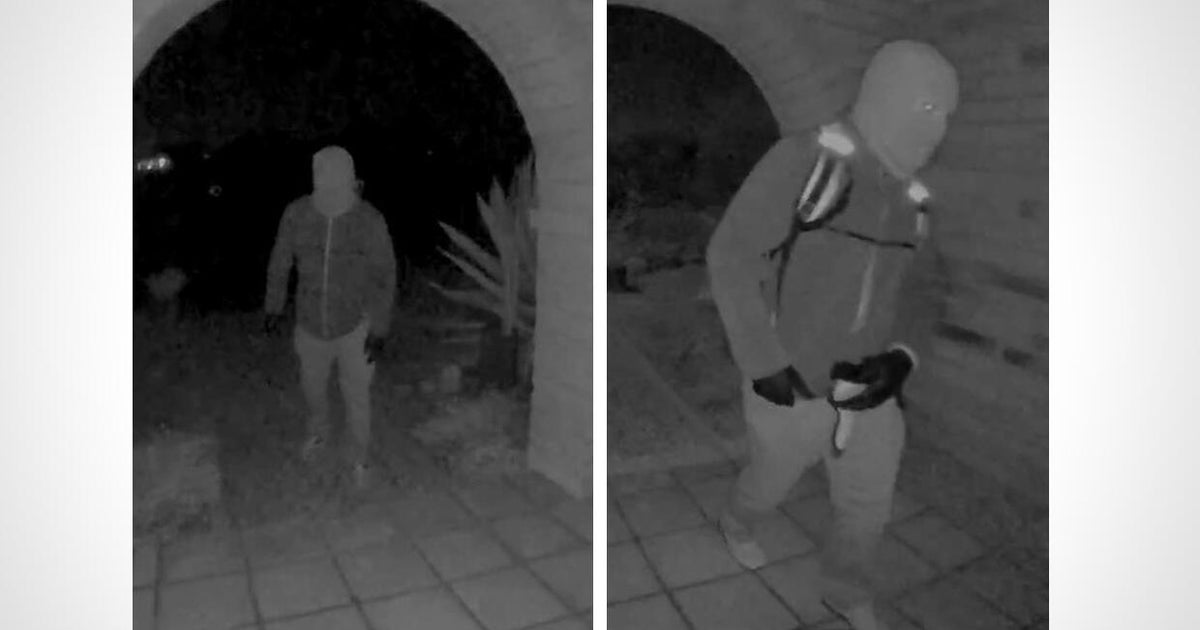How Three-Judge Panel Went After NFL's DeflateGate Case In Court
By Michael Hurley, CBS Boston
BOSTON (CBS) -- The big story coming out of Thursday's hearing in New York was obvious: Tom Brady and Jeffrey Kessler had their first bad day in court.
That story is, undoubtedly, true, and it could no doubt be a preview of how the panel of judges on the U.S. District Court of Appeals for the Second Circuit might rule.
But what may have gotten clouded in the rush to tell the major part of the story is that the judges didn't exactly swoon when NFL attorney Paul Clement was making his case. So in the interest of completing the full story, here's a look at how, exactly, Judges Robert Katzmann, Barrington Parker Jr., and Denny Chin poked holes in the NFL's case.
Question: Was the arbitration award (a four-game suspension) determined after the consideration of new evidence at the arbitration appeal hearing?
This was the question asked by Chief Judge Katzmann to interrupt Clement just seconds after the attorney began making his argument. Specifically, Katzmann asked this:
"Should he been given additional notice about non-cooperation? it started off as ball tampering and then there was the addition of the destruction of the cell phone. Shouldn't that have been a separate discipline?"
The issue at hand was this: did the destroyed cell phone (which was evidence presented after the four-game suspension for "general awareness" had been issued) play a factor in Roger Goodell's decision as arbitrator to uphold the four-game suspension?
This was the main argument of Kessler in his brief to the court, and the example he used was this: Say the arbitrator was Harold Henderson, and not Goodell. It would not be Henderson's role as arbitrator to consider new evidence in the appeal hearing; he'd only be ruling whether the four-game suspension issued was fair and justified and based in reasonable precedent.
Ultimately, the judges didn't seem overly convinced that either side was right in this instance. Mainly, there was the fact that the punishment was not increased after the addition of the new evidence, so even if the arbitrator (Goodell) had considered the new evidence, there is no evidence showing that it affected the final ruling.
However, Judge Chin posed this question to Clement:
"How do we know that [Goodell] wouldn't have lowered the discipline if not for the destruction? Theoretically on appeal, he could have changed his mind."
Clement responded to this question by saying that Brady was not a credible witness. As I explored early Friday morning, this argument was founded on a lie told by the commissioner.
There's also the argument that the destroyed cell phone would relate to the non-cooperation charges and therefore could be considered.
Of course, Paul Tagliabue ruled in the Saints' Bountygate case that non-cooperation in an investigation has never been the reason for an NFL suspension, and Ted Wells said that Brady fully cooperated except for the phone but also never told Brady that there'd be adverse consequences to not handing over his private cell phone. There's also nothing in the CBA that forces players to hand over their private communication devices to the league.
So on this one, consider it unsettled.
Question: Essentially, why is this case even happening? Why is this PSI issue such a big problem?
Specifically, Judge Parker asked this:
"Let me understand. First blush might say this is draconian for a few pounds per square inch of air. Why is the inflation level so critical in these games? What's the advantage you get from an underinflated football?"
That's the million-dollar question, isn't it?
Clement answered: "It depends on who you talk to you. This is not something that's universal. It appears Mr. Brady likes them underinflated, it appears Mr. Rodgers likes them overinflated. ... I think the decision about the severity of this conduct is for the commissioner, not the courts. ...
I don't think the commissioner ruled about this just being about the footballs. This affected the footballs that would be used for every offensive play for the Patriots. But the other thing is I think the commissioner thought this was particularly serious misconduct because there was an idea for the league to circumvent the rule."
Judge Parker followed up: "Is it cosmetic? Is it substantive? Is there any real advantage?"
Clement replied: "Some people might perceive a benefit."
So, the short answer of whether there is any real advantage to having a football with a lower PSI than normal is "not really."
This question from Parker went mostly unanswered, with Clement instead arguing that the "scheme" to tamper with the footballs was more what the commissioner used to base his decision.
Question: The punishment for a player using Stickum (a sticky substance used to improve grip on a football) is just a small fine. Is it not impossible to explain the massive discrepancy in the punishment for the of Stickum compared to this four-game suspension for underinflated footballs, which at best could provide a greater grip on a ball?
Specifically, Judge Katzmann asked this:
"Stickum is banned because it affects the integrity of the competition. The same reasoning could be thought to apply to the alleged offense here. So how does the commissioner's failure to discuss the Stickum penalty [a relatively low dollar fine] and the gross disparagement between Brady's punishment and the Stickum penalty ... how does that not lead to the conclusion that the commissioner was imposing his own brand of industrial justice?"
Clement told Katzmann that because the issue had never been raised in Judge Berman's court, the commissioner never mentioned it.
"The commissioner is not supposed to be clairvoyant," Clement cracked.
Katzmann remained unsold.
Katzmann:
"Given that, you seem to argue that the commissioner has a lot of latitude in terms of developing the facts. Your argument is he can find new factual findings, which in an arbitration decision such as this, cannot be appealed. Given that the commissioner does not have that type of authority … he would know about the Stickum policy."
Clement replied, "He would. If he said this is exactly like Stickum and said 'I'm going to give the punishment for that,' …. I'd be here defending that as within his discretion. But the fact that he didn't do that is both also within his discretion and, I should add, perfectly reasonable."
Still, Katzmann remained unconvinced, and then tied in the comparison the NFL made of underinflated footballs to steroids.
"The Stickum policy does allow or the commissioner to levy substantial penalties," Katzmann said. "Why wasn't this closer to the Stickum policy as opposed to comparisons with steroids?"
Clement answered: "The commissioner made a determination that because of the seriousness of this conduct, every play for the Patriots, and the effort to completely circumvent the process, the combination of that made it in his view when he was looking to assess this penalty, he looked at the steroid penalty and said, 'I think this is equivalent to [steroid use].'"
It was not an overly convincing answer, to say the least, but it spoke to Clement's over-arching point: Goodell's discretion is the only thing that matters, Goodell's decision-making throughout the process has always been completely reasonable, and therefore none of it should not be put on trial. That was the NFL's argument in Judge Berman's court, and it did not prove to be successful.
Question: Given the very unique role of Goodell in this process, was the employee (or player, in this case) protected by a bare minimum of judicial fairness?
Specifically, Judge Parker stated:
"It strikes me that the regime we're reviewing today is fundamentally different to those. Here we have an individual, Mr. Goodell, who in effect is the judge, the juror and the executioner -- not quite the right word, but the enforcer -- and those coincident responsibilities to me make this fundamentally different from arbitrations we typically see, and more importantly from the body of law to give at least minimal judicial protection to the participants in the arbitration process.
Clement's response was simple: the commissioner was granted this power by the CBA.
"I would disagree," Clement replied. "That is just a result of what the parties bargained for."
Clement even admitted, "If you look at through a normal judicial lens, it may seem a little bizarre."
Clement: "Courts shouldn't disturb [the commissioner's role in deciding what is best for the sport]. The fact that [sports decisions are] more different is reason to give more deference."
On this point, I'd say Clement effectively convinced Parker of the situation, because later, Parker said this to Kessler: "This is arbitration. It's casual. It's sometimes even down and dirty."
Question: Is there any limit at all to Roger Goodell's power?
Katzmann essentially asked this question by using these words: "Could the commissioner have suspended Mr. Brady for a year?"
"I think he could have, and if he did, I'd be up here defending it," Clement answered. "But he wouldn't. He would have deemed it excessive. He wanted to do what's best for the sport. ... That's why he has this authority. This is not an authority that he necessarily wants. Who else is going to mediate that dispute? It had to be the commissioner. Somebody has to do it, and the parties in the CBA that had 70 different articles where they bargained over all sorts of other things, they made an agreement that these particular kinds of situations, the commissioner has authority to hear the appeals, even when he has been the one that meted out the punishment."
That answer can go down as: misdirection.
Question: While it's clear that Brady provided gifts for the two employees involved in the allegations, is there any proof that the practice of giving gifts to employees is at all uncommon for a player like Brady?
This question came, unsurprisingly, from Katzmann, who seemed to have the most questions for Clement.
Katzmann asked this:
"The Wells Report recounts that Brady provided gifts to [Jim] McNally and [John] Jastremski. But I can't find anything in the Wells report that concludes that it is more likely than not that these were inducements, more rewards, to participate in the deflation scheme. Is there any part of the Wells report that says that?"
"Well ... " Clement replied, "I don't think the Wells report draws that conclusion."
Clement then gathered himself and said, "There is plenty in the Wells report to draw the reasonable inference that those were inducements. There's no reason to believe the commissioner was operating at the edges of his authority from the raw material provided in the Wells report."
Katzmann then noted that because Brady was given no advance notice that "inducements" would result in a four-game suspension for the league, he was never able to defend himself against those accusations.
From Katzmann:
"Let's say that Mr. Brady understood that inducements or rewards would be a part of the analysis. Maybe he would have called other people in the locker to tease out whether these were inducements or rewards or if they were just a matter of course between players and people who work in the locker room."
Clement then explained that Brady was not a credible witness in the eyes of Wells or Goodell (again using the lie which Goodell authored to characterize the witness as such).
Question: Did Goodell rely on investigative notes of the Paul, Weiss firm when reaching his conclusions?
The investigative notes from the Wells investigation remain a point of contention in this case. The argument, from Brady's side, is that the NFL's lawyers had access to all of these files when preparing for Brady's appeal hearing last June. However, Brady's lawyers had no such access to the files, which included transcripts and notes from the 66 interviews conducted. Ergo, the NFLPA argues, the arbitration hearing was fundamentally unfair.
Here's what Katzmann asked on that point:
"The commissioner states that available ... evidence plus testimony led [Goodell] to conclude that Brady participated in a scheme to tamper with footballs. My question is the information in investigators interviews, is that in the Paul, Weiss documents?"
Clement stated plainly that the commissioner did not rely on those notes.
This answer came up later, when Kessler raised the unfairness issue. Katzmann told Kessler, "Your adversary says that information compiled was not in Paul, Weiss files."
Kessler said that Clement made that claim because, frankly, he did not know the truth.
"That is a complete mistake. I don't blame Mr. Clement. He wasn't there. I was there," Kessler said. "The truth is that all of the interviews that are at the basis of the ball deflation issues, the testing issues, all of that was done over 66 interviews, investigative notes by Paul, Weiss attorneys."
That came at the very end of Kessler's time in front of the judges, so it led quickly to one more area before they put an end to his argument, so it's hard to say exactly how much that argument landed with the judges. However, it was one of the last things they heard from Kessler.
So, take all of these questions together, and it's clear that while the three judges may be more favorable to the NFL's case, they're certainly not 100 percent convinced of the NFL's arguments.
You can email Michael Hurley or find him on Twitter @michaelFhurley.







